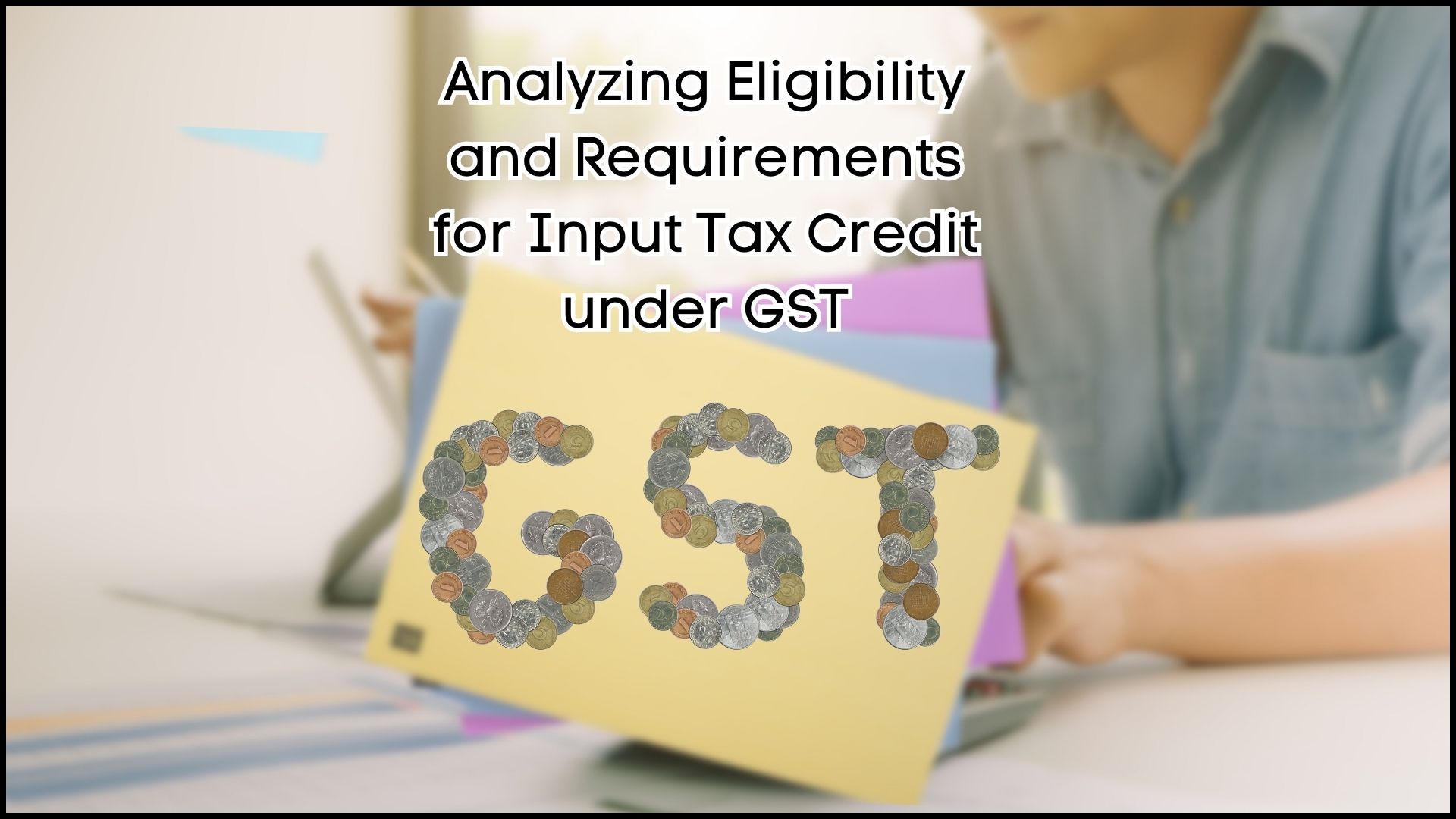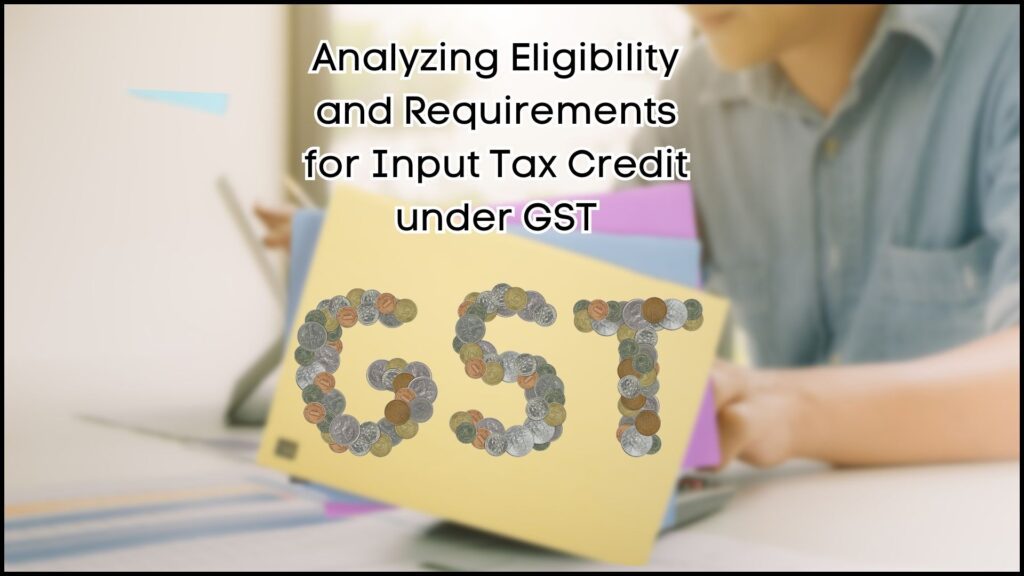
19 Feb Analyzing Eligibility and Requirements for Input Tax Credit under GST

Exploring the intricacies of claiming Input Tax Credit (ITC) under the Goods and Services Tax (GST) framework is paramount for businesses seeking to enhance their financial strategies. This in-depth examination sheds light on the eligibility criteria and conditions governing ITC, offering clarity on compliance requirements and strategic considerations essential for efficient tax management.
Overview of Input Tax Credit (ITC)
Input Tax Credit (ITC) serves as a mechanism enabling businesses to offset the tax paid on inputs, such as raw materials, goods, or services, against the tax liability on output supplies. This mechanism prevents the cascading effect of taxes, ensuring that taxation occurs solely on the value added at each stage of the supply chain, leading to a more efficient and transparent tax system.
For example, when a manufacturer purchases raw materials and pays GST on those materials, they can deduct this amount from the GST collected when selling finished products. This ensures that taxation is applied only to the value added at each stage, rather than taxing the entire value repeatedly.
Eligibility Criteria for Claiming ITC
ITC can only be claimed by GST-registered individuals who fulfill all prescribed conditions:
- Possession of tax invoice.
- Receipt of goods or services.
- Submission of returns.
- Payment of levy by the supplier to the government.
- Claiming ITC upon receipt of the final shipment when products are received in instalments.
- Ineligibility for ITC if depreciation has been claimed on the tax component of a capital asset.
- Ineligibility for taxpayers enrolled under the GST composition scheme.
Conditions Precedent for ITC Claiming
To claim ITC, certain conditions must be met both before and after claiming the credit, ensuring compliance with the GST regime:
- Documentary evidence: Tax invoices, debit notes, and bills of entry serve as essential documentation for claiming ITC. Compliance with applicable e-invoicing requirements is crucial.
- Acquisition of products or services: The recipient must have received the products or services, and ITC on supplies received in the following month should be deferred accordingly.
- Compliance of supplier with GST regulations: Ensuring that the supplier deposits the collected tax into the government's treasury is imperative.
- Details auto-populated on GST return: ITC eligibility is restricted to information provided by the supplier on Form GSTR-1, necessitating regular reconciliation to ensure alignment with the supplier's filings.
- Submission of return: GST returns must be submitted for claiming input tax credits.
Post-Conditions of ITC Eligibility
After claiming ITC, taxpayers must consider certain parameters to ensure proper utilization:
- Payment to the vendor within 180 days to avoid interest charges.
- Avoidance of 'blocked credit' scenarios where ITC claims may be restricted.
- Timely claiming of input tax credit before the specified deadline to prevent forfeiture of eligible credits.
Conclusion
Understanding the eligibility criteria for claiming input tax credit under GST is indispensable for businesses aiming to enhance financial efficiency. Adherence to these criteria facilitates the offsetting of tax liabilities, contributing to improved bottom-line performance. Maintaining accurate records, complying with GST regulations, and staying abreast of evolving guidelines are essential for maximizing input tax credit benefits. As the GST landscape evolves, proactive efforts to comprehend eligibility criteria will streamline financial operations and foster business growth and compliance.


No Comments